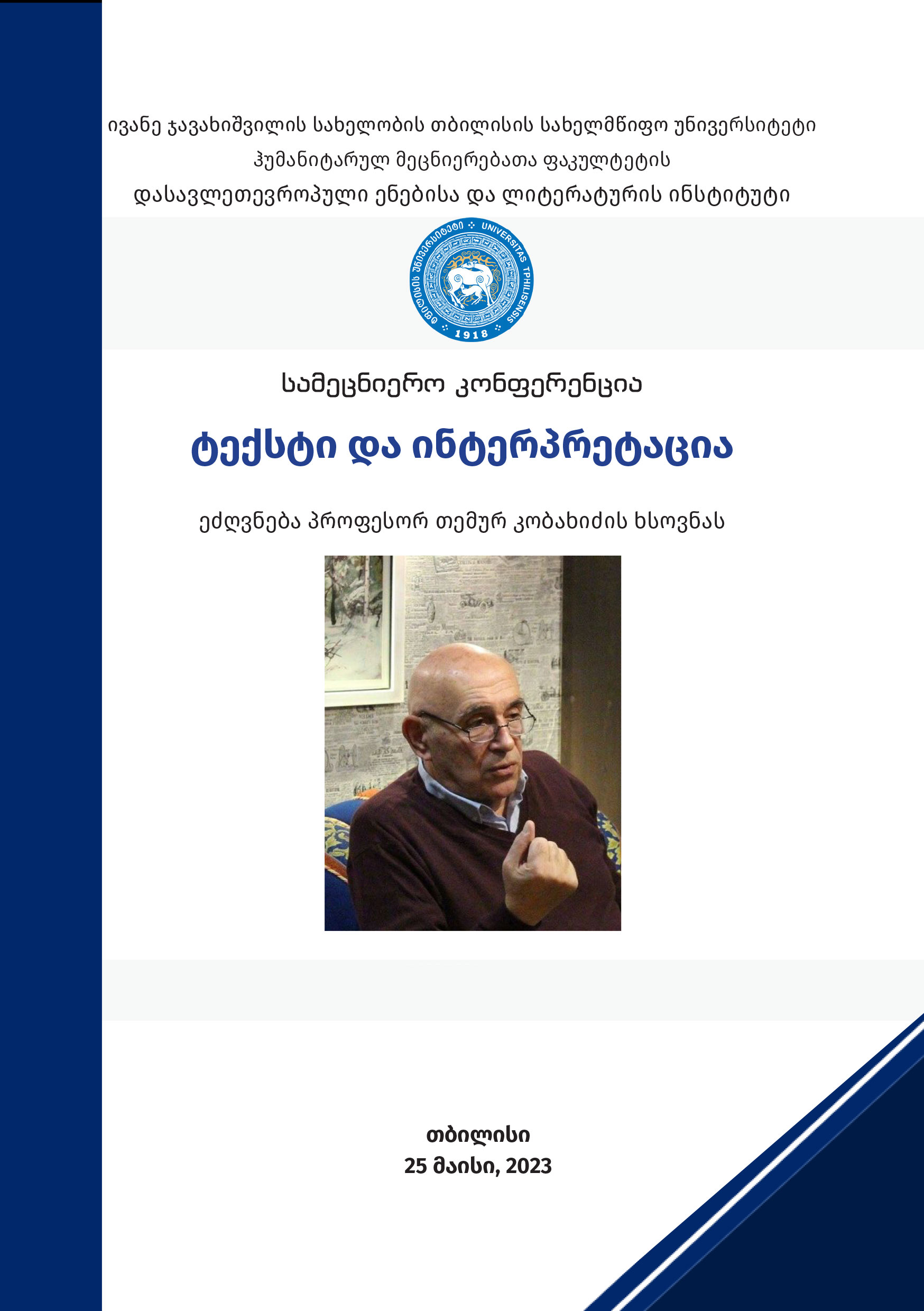The Interpretation of Wendell Ryder as New Adam in Djuna Barnes’ Ryder
DOI:
https://doi.org/10.55804/jtsu-2960-9461-2023-9Keywords:
Djuna Barnes, New Adam, Modernism, New Religion, parodyAbstract
Djuna Barnes’ Ryder, published in 1928, is connected to the period of her Parisian literary career. Horace Liveright publishing house heavily censored the text, and the original manuscript perished during the World War II. In 1979, St. Martin publishing house allowed Djuna Barnes to restore excerpts from the text, but the writer declined it. She thought she had said everything in the foreword to the first edition, and did not want to add anything else. In reality, Barnes did not remove a single word or phrase from the text but replaced them with asterisks, which further attracted the readers' attention to forbidden parts.
Wendell Ryder, the main character of the novel, presents the modernistic image of New Adam. The author calls him Jesus Mundane whose main aim is to create a new religion.Wendell's symbolic connection with Jesus isconfirmed by the story of his conceiving in his mother’s womb. Sophia Grieve Ryder says she got pregnant after seeing Beethoven in her dream. In this case, Sophia appears in the role of the Virgin Mary, who by conception gave birth to Jesus Mundane. The Barnesian New Adam creates a religion highlighting carnal pleasures, dominance of nature, and giving birth to as many children as possible with the help of polygamous relationships. The hedonist Ryder rejects the rule of law or religion and lives with two wives, although he has relationships with many other women. The New Adam does not refrain from using the force to realize his idea of fertilization which gives him a status of a crueler nymphomaniac than the Son of God fighting for reproduction. On the one hand, such an approach is a rebellion against the Victorian era and an indication of its parody as well, when it was necessary to preserve the sacredness of the family, and polygamy was also considered the norm. On the other hand, Barnes is mocking the religious dogmas and the degraded modernity that has arisen on its basis, for which the notion of family has lost its value.
Wendell's glorification of natural phenomena reveals the influence of Transcendentalists and embodies nostalgia for heaven. However, since he represents a kind of primitivenesscharacteristic for animals, his philosophy towards the world is perceived more grotesquely.Using Chaucerian language while describing Wendell in the “The Occupation of Wendell” the chapter turns out to be closely related to “The Tale of Sir Thopas”. It meticulously repeats its rhythm and structure. The author uses footnotes to explain archaic words and helps the reader understand her narration. By presenting the text this way, Barnes assumes the role of writer, philologist, and editor; She also reveals her ironic attitude because the reader has to follow the footnotes in order to understand the content. Djuna Barnes sets up a chain reaction between her novel and the tale in which Chaucer mocked monotonous chivalric romances. Thus Barnes parodied not only the 14th century poem but the character of Jesus Mundane.

